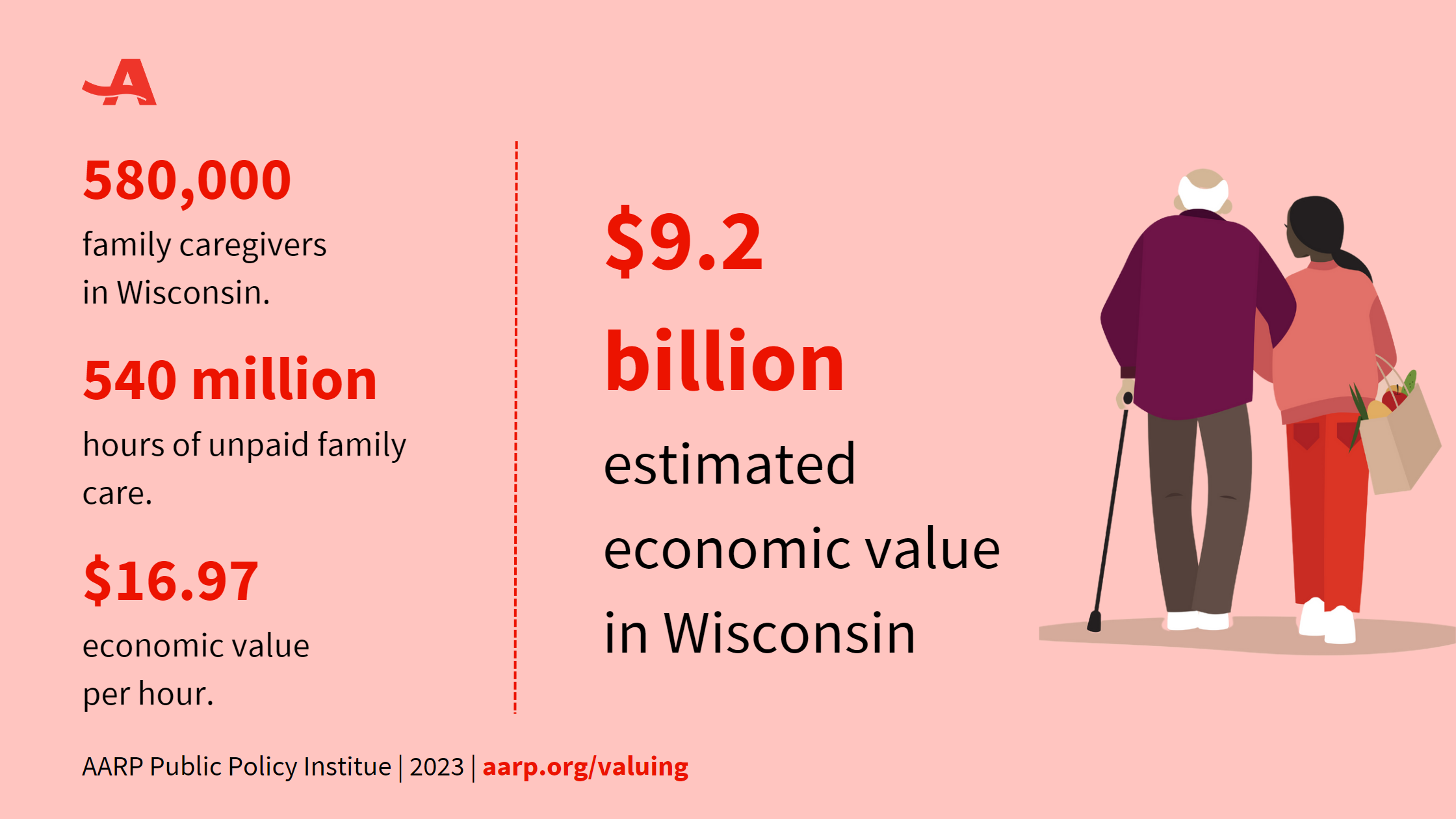AARP Hearing Center

The unpaid care provided by the estimated 580,000 family caregivers in Wisconsin is valued at $9.2 billion, according to new state data available in AARP’s latest report in the Valuing the Invaluable series.
The report highlights the growing scope and complexity of family caregiving and highlights actions needed to address the many challenges of caring for parents, spouses, and other loved ones.
Family caregivers play a vital role in Wisconsin’s health care system, whether they care for someone at home, coordinate home health care, or help care for someone who lives in a nursing home. We want to make sure all family caregivers have the financial, emotional and social support they need, because the care they provide is invaluable both to those receiving it and to their community.
Family caregivers take time out of their own busy lives to help loved ones with tasks such as shopping, bathing, cooking, medication management, wound care, home repairs and transportation. Their work is valued at $16.97 per hour in Wisconsin, which means they provide about $9.2 billion in uncompensated care for their loved ones every year.
AARP Wisconsin is fighting and will continue to fight for family caregivers and the loved ones they care for. Right now, AARP is urging state lawmakers to support family caregivers who work because caring for a loved one shouldn’t mean losing income.
“We support provisions in the governor’s budget that would create a caregiver tax credit, which acknowledges the financial burden placed on caregivers and has the potential to alleviate some of this burden,” Cranley said. “Caregivers are unsung heroes who often sacrifice their financial and physical wellbeing to take care of a family member.”
That’s why AARP supports the creation of a non-refundable caregiver tax credit that would reimburse certain family members up to $500 each for up to 50% of the expenses they incur each year related to providing care for loved ones. This would allow more freedom, flexibility, and financial relief for caregivers.
“Nearly 90 percent of Wisconsin residents aged 45-plus support providing family caregivers with a tax credit to help offset the money spent on caring for loved ones,” Cranley said.
AARP Wisconsin also supports improvements to the Wisconsin Family Medical Leave Act, which is also part of the governor’s budget. The current act applies to employers and employees of companies with at least 50 permanent employees. The law allows employees to take two weeks of unpaid leave for a serious health condition or to care for a parent, child, or spouse or for the birth of adoption of a child.
Nearly three quarters of family caregivers in Wisconsin are in the workforce. AARP supports expanding the act to include grandparents, caregivers, and those with chronic conditions. The change would Wisconsinites to take up to 12 weeks of paid leave to help care for a loved one. Additionally, the creation of a state FMLA benefit insurance program would provide benefits to those on FMLA leave. These benefits would be provided through a state trust fund created by the bill.
Read the full report here for national and state-by-state data on the economic value of unpaid care by family and friends. Resources and information on family caregiving are available at aarp.org/caregiving.































































